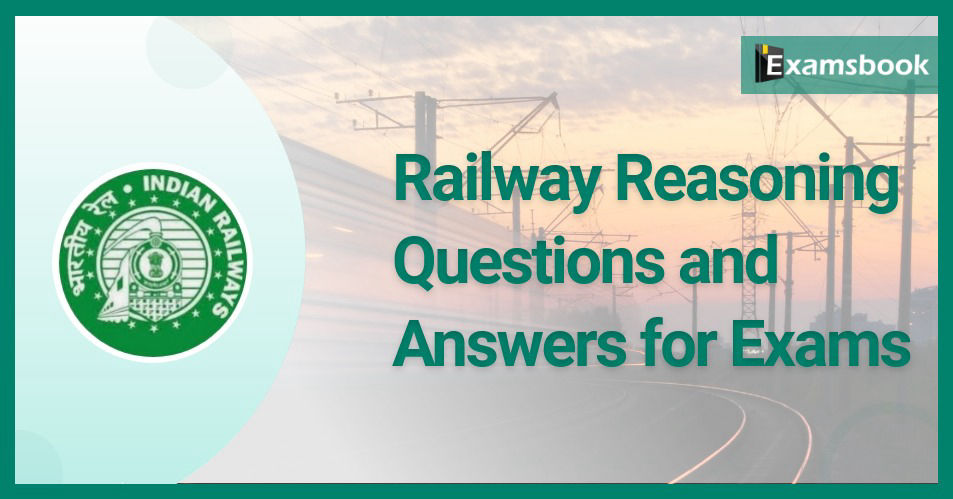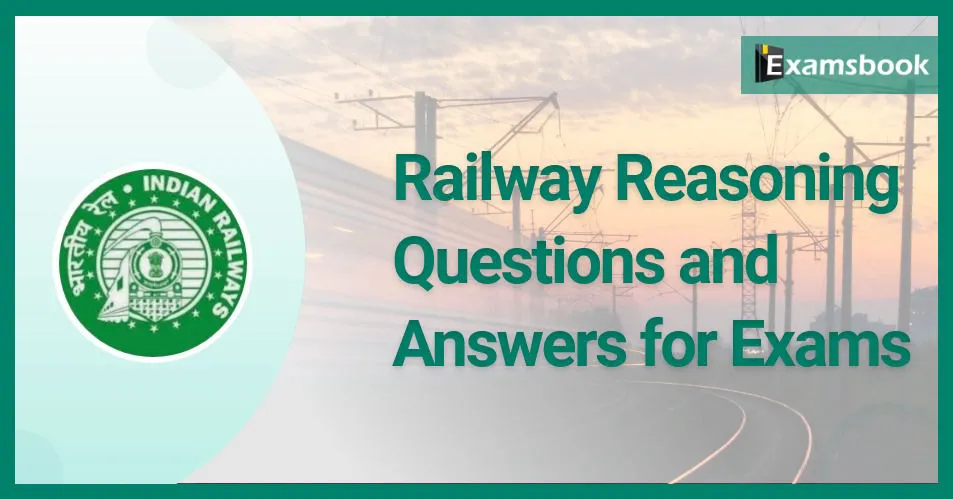


DIRECTIONS: In the question below are given two statements followed by two conclusion numbered I and II. You have to take the two given statements to be true even if they seem to be at variance with the commonly known facts and then decide which of the given conclusions logically follows from the two given statements, disregarding commonly known facts.
Q :Statements:
Some teaspoons are glasses.
All teddies are teaspoons.
Conclusions:
I. Some teddies are glasses.
II. Some glasses are teddies.
(A) if only conclusion I follows
(B) if only conclusion II follows
(C) if either I or II follows
(D) if neither I nor II follows
Direction: - In each question given below four statements are followed by two conclusions numbered I and II. You have to take the four statements to be true even if they seem to be at variance from the commonly known facts. Read the conclusions and decide which logically follows from the given statements disregarding commonly known facts:
1. If only conclusion I follows.
2. If only conclusion II follows.
3. If either conclusion I or II follows.
4. If neither conclusion I nor II follows.
5. If both conclusions I and II follow.
Statements:
Some ode are lovely. All lovely are music
No music is sad. No sad is joy
Conclusions:
(I) Some ode are not music
(II) Some music being sad is a possibility
(A) 1
(B) 2
(C) 3
(D) 4
(E) 5
Direction: - In each question given below four statements are followed by two conclusions numbered I and II. You have to take the four statements to be true even if they seem to be at variance from the commonly known facts. Read the conclusions and decide which logically follows from the given statements disregarding commonly known facts:
1. If only conclusion I follows.
2. If only conclusion II follows.
3. If either conclusion I or II follows.
4. If neither conclusion I nor II follows.
5. If both conclusions I and II follow.
Statements:
Some ode are lovely
All lovely are music
No music is sad
No sad is joy
Conclusions:
(I) All ode being joy is a possibility
(II) Some lovely being sad is a possibility
(A) 1
(B) 2
(C) 3
(D) 3
(E) 5
Direction: - In each question given below four statements are followed by two conclusions numbered I and II. You have to take the four statements to be true even if they seem to be at variance from the commonly known facts. Read the conclusions and decide which logically follows from the given statements disregarding commonly known facts:
1. If only conclusion I follows.
2. If only conclusion II follows.
3. If either conclusion I or II follows.
4. If neither conclusion I nor II follows.
5. If both conclusions I and II follow.
Statements:
Some logic are right. Some right are left.
No left is grace. All grace are beauty
Conclusions:
(I) Some beauty are not right
(II) Some beauty are not left
(A) 1
(B) 2
(C) 3
(D) 4
(E) 5
Direction: - In each question given below four statements are followed by two conclusions numbered I and II. You have to take the four statements to be true even if they seem to be at variance from the commonly known facts. Read the conclusions and decide which logically follows from the given statements disregarding commonly known facts:
1. If only conclusion I follows.
2. If only conclusion II follows.
3. If either conclusion I or II follows.
4. If neither conclusion I nor II follows.
5. If both conclusions I and II follow.
Statements:
Some logic are right. Some right are left
No left is grace. All grace are beauty
Conclusions:
(I) All logic and left not being beauty is a possibility
(II) Some left are grace
(A) 1
(B) 2
(C) 3
(D) 4
(E) 5
Consider the given statement true and decide which of the given conclusions can definitely be drawn from the given statements.
Statement:
People complain that bus tickets are not available during festival seasons.
Conclusion:
1. People should be advised not to travel during festival seasons.
2. The government should bring in more buses during festival seasons.
(A) only conclusion 2 follows.
(B) only conclusion 1 follows.
(C) Both 1 and 2 follow.
(D) Neither 1 nor 2 follows.
Cosider the given argument and decide which of the given assumptions is (are) implicit.
Argument:
Due to water crisis in the city, the authority had asked all the citizens to reduce their water consumption by 25%.
Assumptions:
1. Many citizens may reduce their water consumption.
2.Many activists may protest to this advisory by the authority.
(A) Only assumption 2 implicit.
(B) Both 1 and 2 are implicit.
(C) Neither 1 nor 2 is implicit.
(D) Only assumption 1 implicit.
Statement:
If he is intelligent, he will pass the examination.
Assumptions:
I. To pass, he must be intelligent.
II. He will pass the examination.(A) a
(B) b
(C) c
(D) d
(E) e
Statement:
Imprisonment for 27 years made Nelson Mandela, the President.
Assumptions:
I. Only who will be imprisoned for 27 years will become the President.
II. To become the President, imprisonment is a qualification.
(A) a
(B) b
(C) c
(D) d
(E) e
Statements:
I. Some appliances are electronic.
II. Some electronics are tube lights.
Conclusions:
I. Some appliances are tube lights.
II. No tube light is an appliance.
(A) Only conclusion I follows.
(B) Neither conclusion I nor II follows.
(C) Only conclusion II follows.
(D) Either conclusion I or II follows.
Get the Examsbook Prep App Today